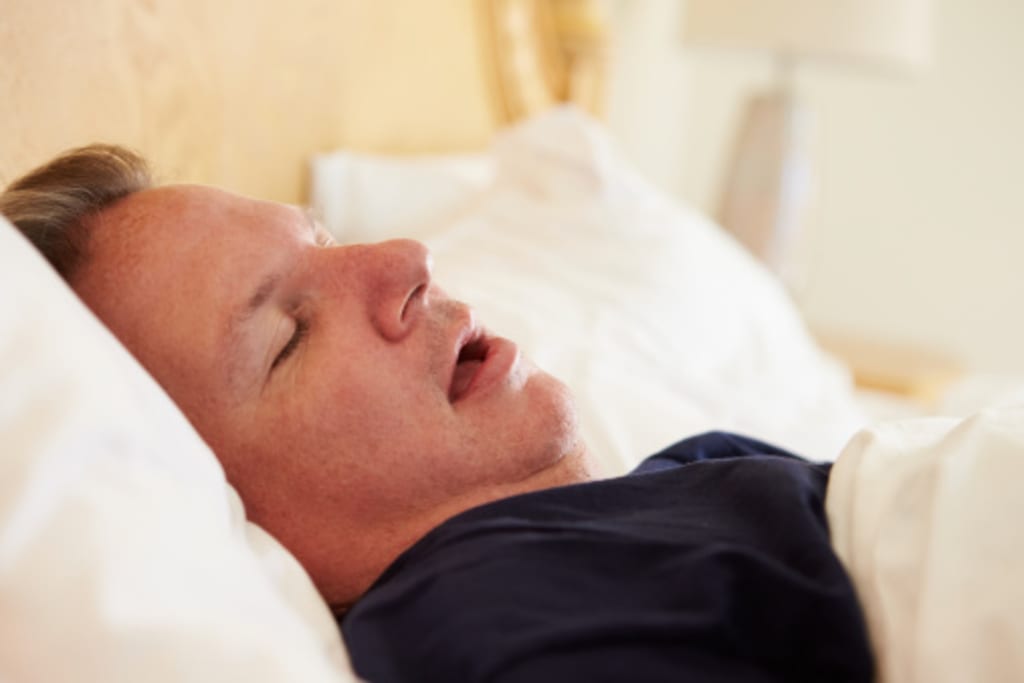How Bad Snoring Can Be
What effects snoring has

Snoring is not only bad for you, but it can be upsetting to your partner as well.
You can do any of the aforementioned actions, so you do not even have to put up with it.
Get the assistance you require, and you'll be able to sleep better at night and maintain your health over time.
Snoring is noisy and upsetting to the one who is listening to it, but it is an unintentional and unconscious behavior for the individual who is snoring.
The problem of snoring is caused by the airway becoming blocked while you're asleep.
The airway narrows while we sleep as a result of the airway muscles relaxing.
The soft tissues lining the airway therefore begin to vibrate as we attempt to breathe via the little opening.
An effect of this vibration is snoring.
The signs of snoring
The loud breathing that takes place while you're asleep is the most obvious sign of snoring.
Many people don't even realise they snore since they don't pay attention to the possibility that they may.
Here are some further signs;
• Excessive daytime drowsiness and weariness.
• Headaches in the morning.
• Loss of memory and difficulty focusing.
• Continuous night-time bathroom use.
• Depression, mood changes, and irritability.
Things that make snoring more likely
Some people are more likely than others to snore, but the possibility varies from person to person.
Despite the fact that many women snore as well, men snore more frequently.
Pregnancy increases the prevalence of snoring.
Additionally, as people age, snoring is a possibility for both men and women.
Here are a few more things that can make you more likely to snore.
• Excess weight.
• Drinking booze.
• Cigarettes.
• Nasal issues include a deviated septum or nasal congestion.
• Snoring that runs in families.
In the absence of these risk factors, some people's snoring may be caused by the form of their head, neck, or airway.
How are snoring and sleep apnea related?
The main symptom of the sleep disorder sleep apnea is snoring.
Even though not everyone who snores has sleep apnea, the condition is related to snoring and calls for medical attention.
Snoring is not exactly healthy, but it is not always an indication that someone has sleep apnea. Many people have this condition but are unaware of it.
If a person has sleep apnea, they may snore intermittently, with loud gasps and pauses, and they may even snore while choking or snorting.
Even those who are experiencing it may not be aware of it, but those around them will notice the symptoms and draw their attention to it.
Pay attention to these obstructive sleep apnea symptoms;
• Extreme snoring volume.
• Noticed breathing pauses, choking, and snorting noises when sleeping
• A headache and dry mouth in the morning.
• Feeling drowsy throughout the daytime even after sleeping for the full 7-8 hours at night.
• Anxiety, depression, mood changes, and
The main reason you should pay attention to your snoring is because there is a link between sleep apnea and snoring.
Without proper medical attention, sleep apnea can aggravate other serious illnesses including type 2 diabetes or cardiovascular disease.
snoring treatment.
There are several efficient snoring treatment alternatives available, so no matter which one you choose, never ignore a snoring issue.
It can result in additional health issues or a more serious sleep disorder.
You can stop snoring or treat it with the help of the following advice.
• Reduce your weight.
People who are obese or overweight have extra throat tissue that restricts the free passage of air through their airways.
These tissues will disappear with weight loss, which will also lessen snoring.
• Alternate positions as you sleep.
Your airway will become narrower if you sleep on your back with your face up because your tongue will slip back into your throat.
This can be avoided by altering your sleeping habits.
Try to sleep on your side and stay in that posture all night.
Put a tennis ball in the back of your pyjama top if you have trouble staying on your side.
• Raise your head when you sleep.
Raise the head of your bed by 4 inches to try sleeping with your head elevated.
• Put nasal strips on.
Wear an adhesive nasal strip on your nose's bridge so that your nasal canal can expand and air can flow freely.
To make breathing easier, you can also use a nasal dilator, which is put to the outside of the nose.
• As soon as possible, treat nasal congestion.
Never go untreated if you have nasal congestion or a deviated septum.
It restricts your ability to breathe through your nose and forces you to breathe through your mouth, which causes snoring.
• Limit the amount of alcohol, sedatives, and depressants you take.
Your central nervous system is depressed and your muscles are relaxed as a result of alcohol and sedatives.
None of them should be consumed within two to three hours of bedtime.
Stay as far away from them as you can.
• Give up smoking.
Smoking is not exactly a healthy habit in and of itself, but quitting can assist with snoring and keep you healthy.
• Get proper rest.
Adults should sleep for seven to eight hours every night, while children who are not yet in school need between ten and fourteen hours.
Teenagers should receive 8 to 10 hours of sleep per night, while school-aged children need between 9 and 12 hours.
• Use oral snore-reducing devices.
The anti-snore device is a mouthpiece that is inserted into the mouth and moves the tongue and throat to widen the airway.
You need to see a sleep specialist to ensure the device is operating properly. Your dentist will assist you in adjusting the fit of this device.
• Constant positive pressure in the airways (CPAP)
This mask has a pump attached to it.
In order to prevent your airway from becoming obstructed while you sleep, you wear the mask on your face, and the pump pushes pressured air into it via a tube.
When obstructive sleep apnea is severe, CPAP is an effective therapy option.
• Procedure
Your upper airway can be surgically opened, ensuring that it never becomes blocked while you sleep.






Comments
There are no comments for this story
Be the first to respond and start the conversation.